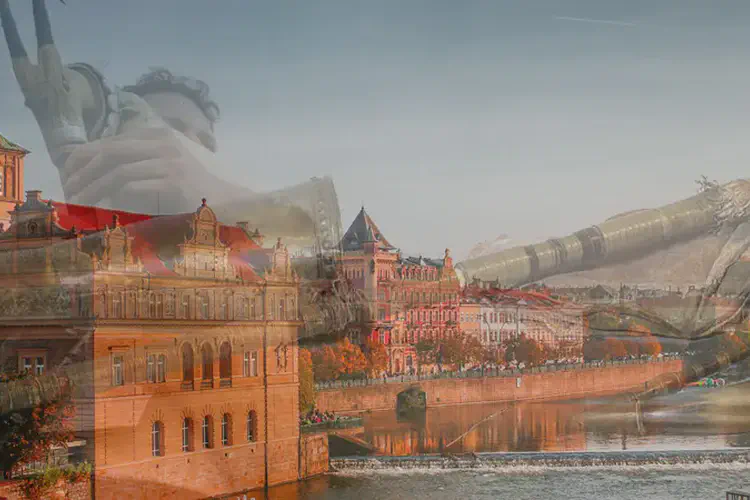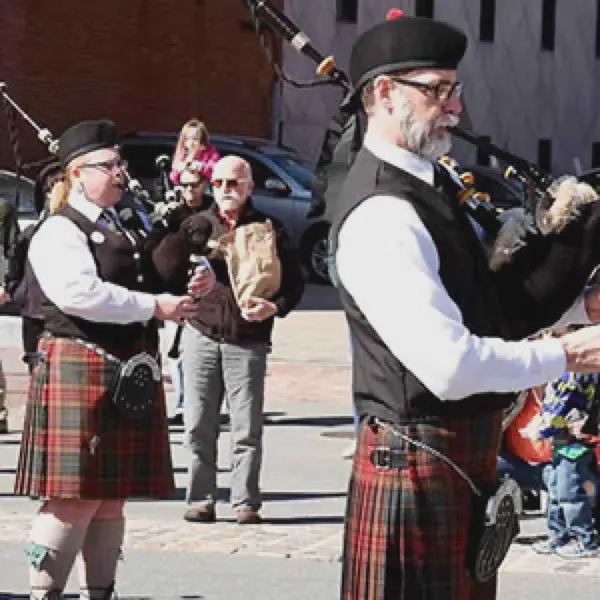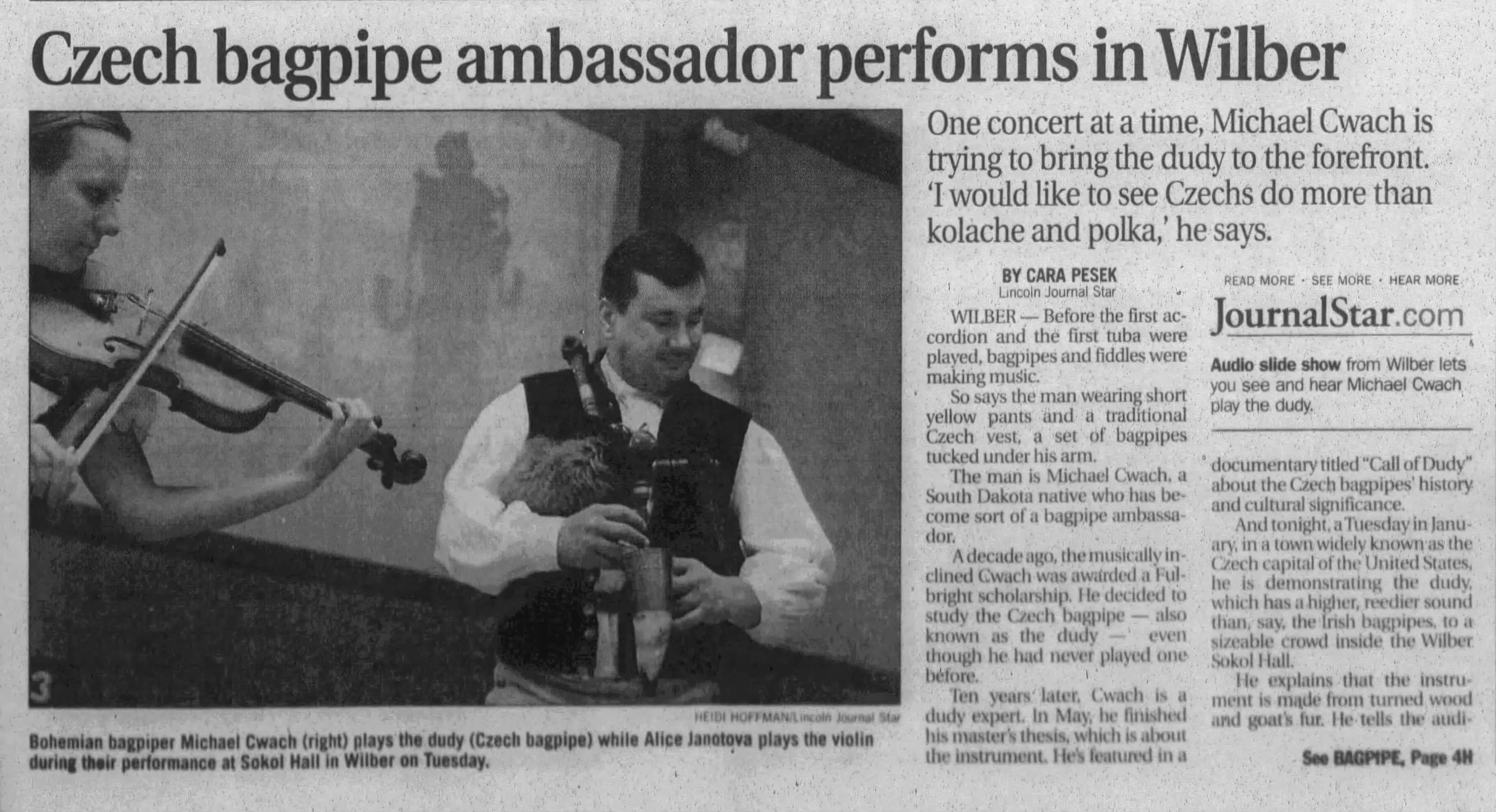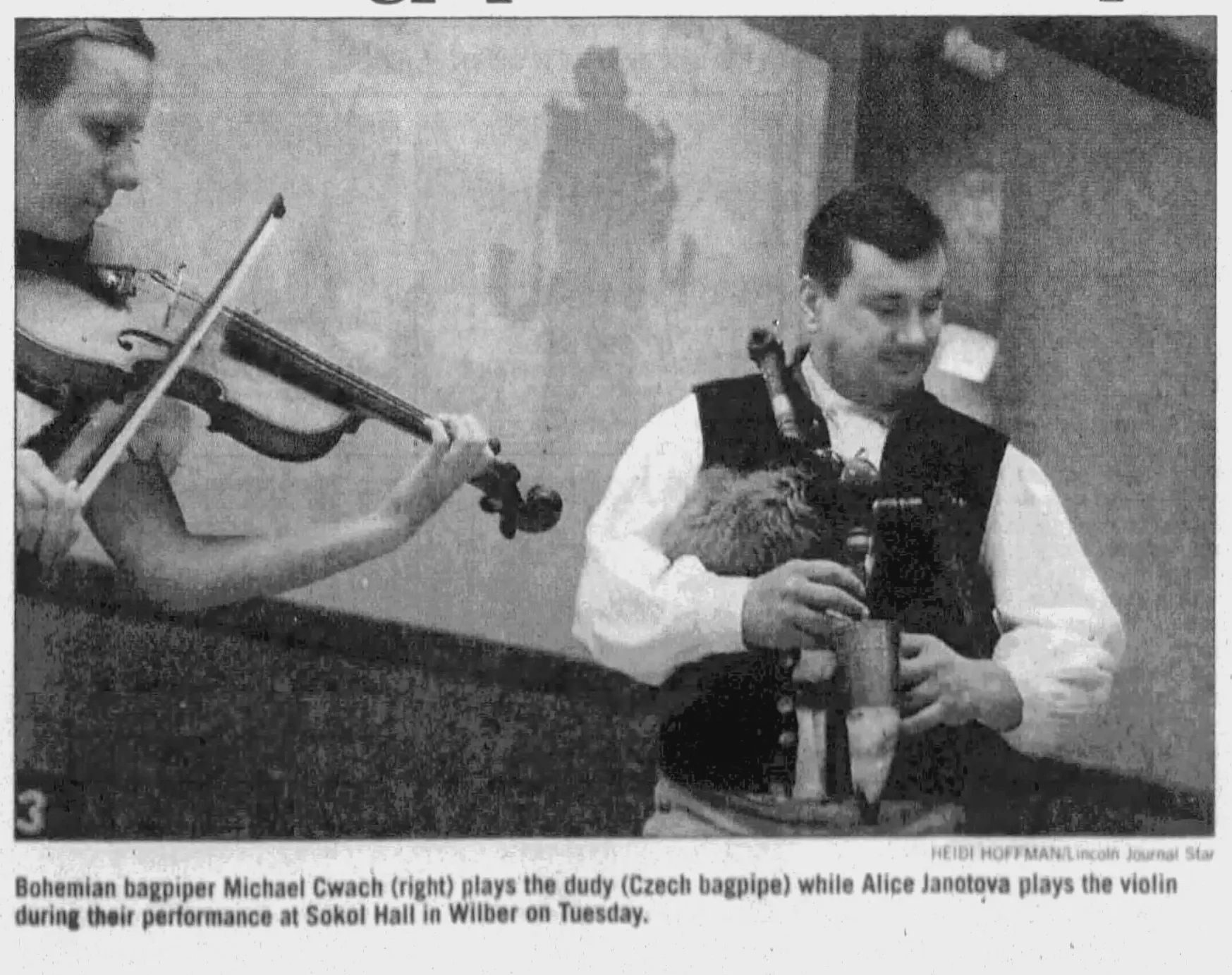
- bagpiper
- Instruments
- March 26, 2024
Table of Contents
The Dudy, also known as the Czech bagpipe, is a traditional musical instrument from the Czech Republic, specifically Bohemia and Moravia.
This instrument is part of the broader family of European bagpipes and has a rich history and cultural significance in Czech folk music.
Characteristics
- Design: Similar to other bagpipes, the Dudy consists of a bag made from animal hide (often goat or sheep), into which air is blown through a blowpipe. The bag serves as an air reservoir that feeds the melody pipe (chanter) and one or more drone pipes. The chanter and drones have reeds, usually made from cane, that vibrate to produce sound.
- Appearance: The Dudy is notable for its ornate decoration. The bags are often embellished with intricate embroidery, and the pipes may be adorned with decorative elements, reflecting the rich folk art traditions of the Czech Republic.
- Sound: The sound of the Dudy can vary depending on the specific type and region of origin but generally produces a rich, resonant tone characteristic of bagpipes. The drone pipes provide a continuous harmonic background, while the chanter allows for the melody.
Regional Variations
There are several regional variations of the Czech bagpipe, each with its own distinct features and tuning. These variations reflect the diverse musical traditions within the Czech Republic and are often named after their specific regions or functions within folk ensembles.
Usage and Repertoire
- Folk Music and Dance: The Dudy plays a central role in Czech folk music, accompanying dances, songs, and ceremonies. Its repertoire includes a wide range of traditional melodies that have been passed down through generations.
- Cultural Events: The instrument is a staple at cultural festivals, weddings, and other celebrations, where it is celebrated for its ability to evoke a sense of community and national identity.

- Visit Petr Skalický website at http://www.dudy.eu
Preservation and Revival
- Revival Efforts: Like many traditional instruments, the Dudy experienced a period of decline in the face of modernization. However, there has been a resurgence of interest in folk traditions in the Czech Republic, leading to efforts to preserve and promote the Dudy as an integral part of Czech heritage.
- Educational Programs: Workshops, folk music schools, and festivals play a crucial role in teaching new generations how to play the Dudy, ensuring the survival and continued evolution of this traditional instrument.
Contemporary Use
- Innovation and Fusion: Modern musicians have begun to explore the potential of the Dudy in contemporary music, blending traditional Czech folk melodies with a variety of musical genres. This experimentation has helped to introduce the Dudy to a wider audience and underscore its versatility as a musical instrument.
In summary, the Dudy bagpipe is a significant element of Czech cultural and musical tradition, embodying the rich history and regional diversity of the Czech Republic. Through ongoing preservation efforts and creative adaptations, the Dudy continues to be a vibrant and cherished symbol of Czech identity.

